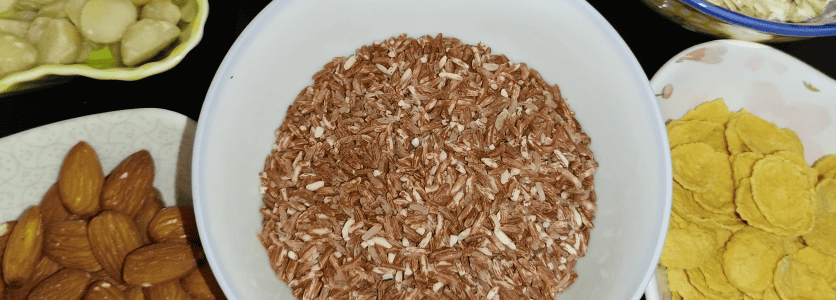19 Disember 2022
•3 bacaan minit
What You Eat Affects Your Pregnancy Outcome
Oleh Dr. Soon Khai Cherng
There is a saying “you are what you eat”. From preconception to antenatal period, what you consume can potentially affect your pregnancy outcome.
Pre-pregnancy folic acid
Folic acid is the synthetic form of folate, which is a naturally occurring B vitamin. Folate helps make DNA and other genetic material. It is especially important in prenatal health.
Studies show that consuming 400mcg of folic acid per day can reduce risk of neural tube defect by more than 70%.

The two most common types of neural tube defects are anencephaly and spina bifida. Anencephaly is a serious birth defect in which parts of a baby’s brain and skull do not form correctly. Almost all babies born with anencephaly will die shortly after birth. Spina bifida is a serious birth defect in which a baby’s spine does not form correctly and can result in some severe physical disabilities.
Every woman who is capable of becoming pregnant should get 400 mcg of folic acid every day.

There are three ways women can get enough folic acid. They can choose to:
- Take a vitamin supplement containing 400 micrograms of folic acid daily, or
- Eat a fortified breakfast cereal daily which contains 100% of the recommended daily amount of folic acid (400 micrograms).
- In addition, increase consumption of foods fortified with folic acid (e.g., “enriched” cereal, bread, rice, pasta and other grain products) in addition to consuming food folate from a varied diet (e.g., orange juice and green vegetables).
Say no to alcohol consumption during pregnancy
Alcohol in the mother’s blood passes to the baby through the umbilical cord. Alcohol use during pregnancy can cause miscarriage, stillbirth, and a range of lifelong physical, behavioral, and intellectual disabilities. These disabilities are known as fetal alcohol spectrum disorders (FASDs).

Children with FASDs might have the following characteristics and behaviors:
- Abnormal facial features, such as a smooth ridge between the nose and upper lip (this ridge is called the philtrum)
- Small head size
- Shorter than average height
- Low body weight
- Poor coordination
- Hyperactive behavior
- Difficulty with attention
- Poor memory
- Difficulties in school (especially with maths)
- Learning disabilities
- Speech and language delays
- Intellectual disability or low IQ
- Poor reasoning and judgment skills
- Sleep and sucking problems as a baby
- Vision or hearing problems
- Problems with the heart, kidney, or bones
There is no known safe amount of alcohol use for mothers during pregnancy or while trying to get pregnant. There is also no safe time for alcohol use during pregnancy. All types of alcohol are equally harmful, including all wines and beer. FASD is preventable if the baby is not exposed to alcohol before birth.
No smoking during pregnancy
Tobacco use during pregnancy increases the risk of preterm birth, low birth weight, and birth defects of mouth and lips.

E-cigarettes and other tobacco products containing nicotine (the addictive drug found in tobacco) are not safe to use during pregnancy. Nicotine is a health danger for pregnant women and developing babies. It can damage a developing baby’s brain and lungs. Also, some of the flavorings used in e-cigarettes may be harmful to a developing baby.
Maintain normal body weight before pregnancy

Obesity is a strong risk factor for any pregnant woman.
- gestational hypertension
- preeclampsia
- gestational diabetes mellitus
- delivery of large-for-GA infants
- higher incidence of congenital defects (heart defect, neural tube defect)
- Thromboembolism
- Miscarriage
Yet, most obesity cases are modifiable risk factors for pregnancy via lifestyle changes. A healthy pre-pregnancy weight can be achieved via regular exercise and diet control.
- Remember, you are what you eat! By consuming a proper diet, and maintaining a negative calory balance, weight loss is possible.
A negative calorie balance state occurs when you burn more calories than you take in.

Obese women also have higher chances of developing Type 2 Diabetes Mellitus which itself can increase the risks of congenital fetal anomaly.
In summary, a lifestyle modification is hard for the majority of people, but once you can deliver a healthy baby, all your effort is worthwhile.
“Stay fit! Stay healthy! Healthy mum, healthy baby!”
You do your part, and the rest, let your obstetrician guides you through your wonderful pregnancy journey.
This article first appeared in Borneo Post Online, 18 Dec 2022.
Berkongsi:
Adakah artikel ini membantu?
19 Disember 2022
•3 bacaan minit
What You Eat Affects Your Pregnancy Outcome
Oleh Dr. Soon Khai Cherng
Artikel dan Video
Ketahui lebih lanjut tentang Obstetrik Dan Ginekologi dalam Columbia Asia
Ketahui lebih lanjutPerlukan bantuan lanjut?
Bercakap secara langsung atau hubungi Columbia Asia hospital berhampiran anda.
Hubungi KamiBerkongsi:
Adakah artikel ini membantu?
Pakej Kesihatan
Meningkatkan kesihatan anda dengan pakej kesihatan yang disesuaikan di Columbia Asia Hospital. Jaga perjalanan kesihatan anda hari ini.
Merah Jambu Oktober 2024
Dari
RM80

